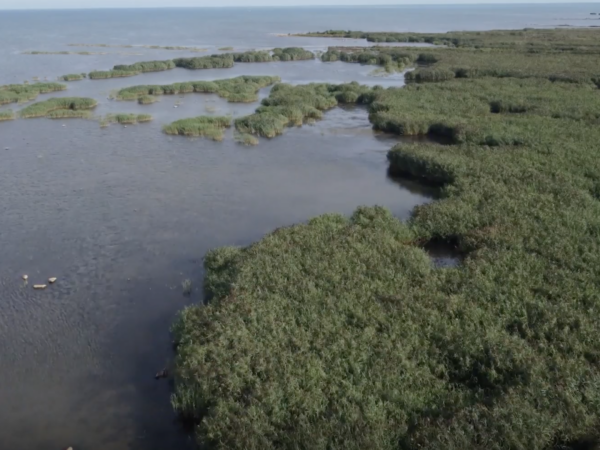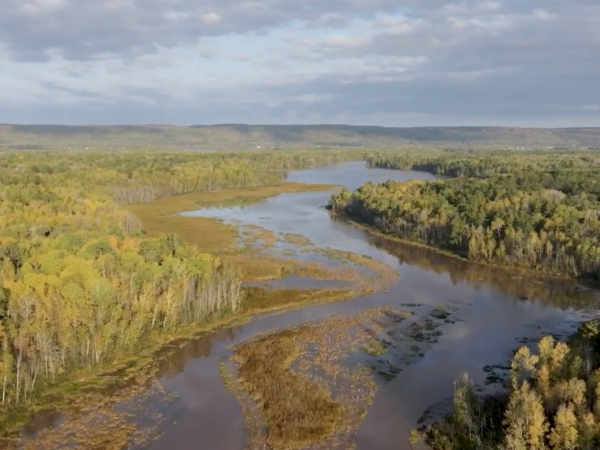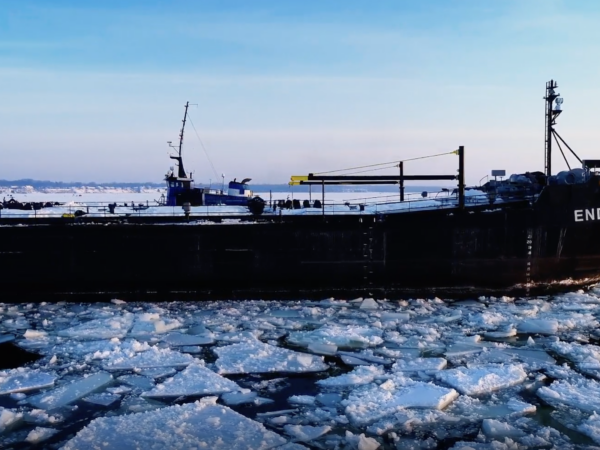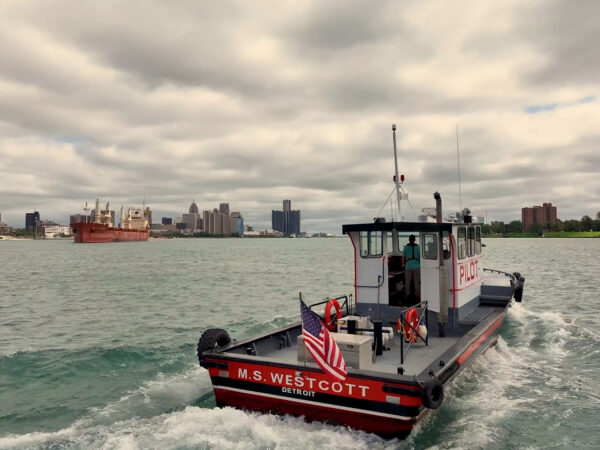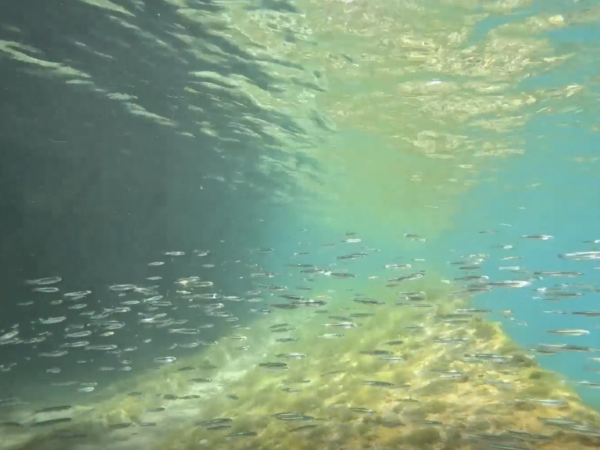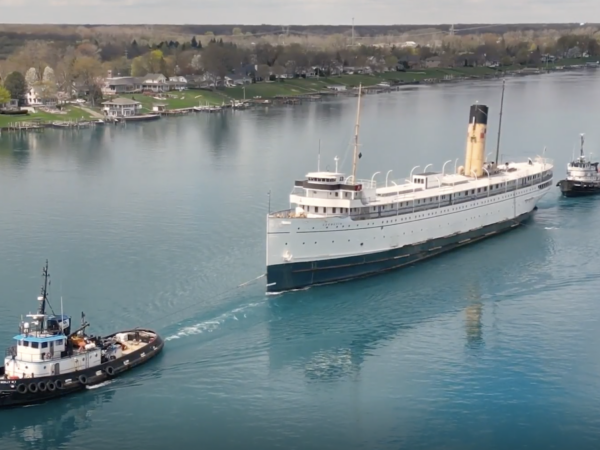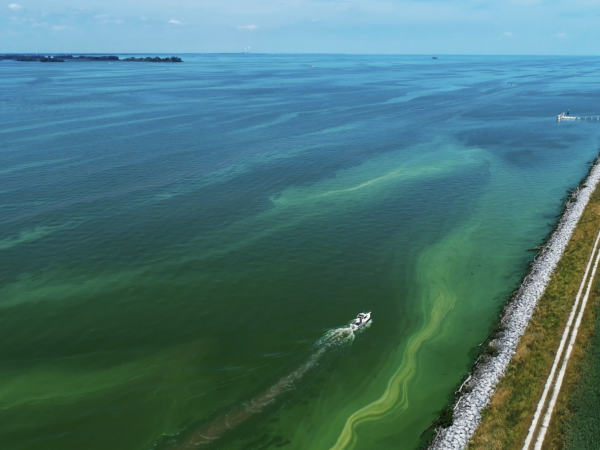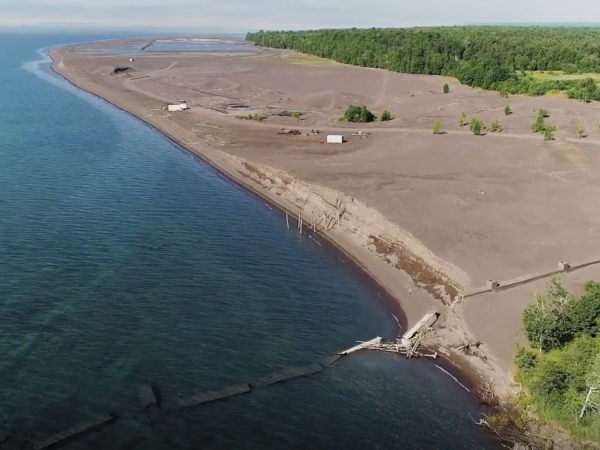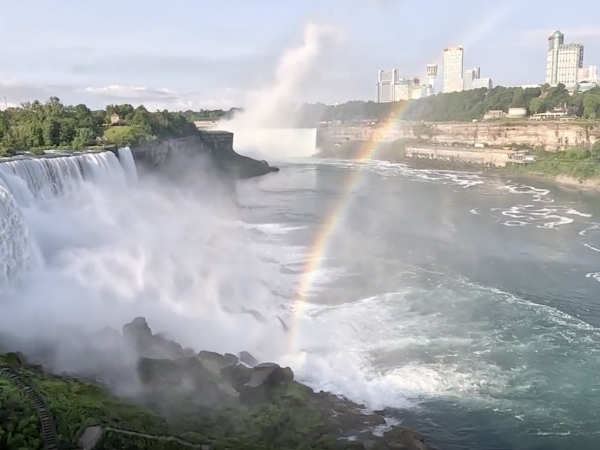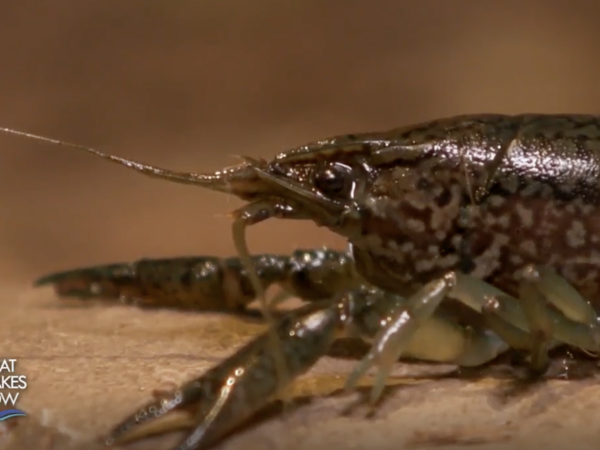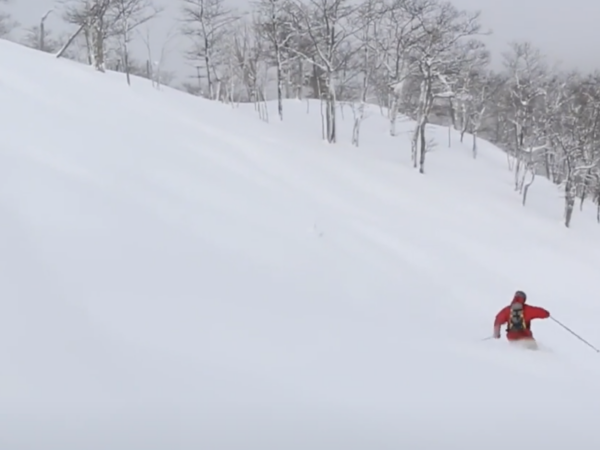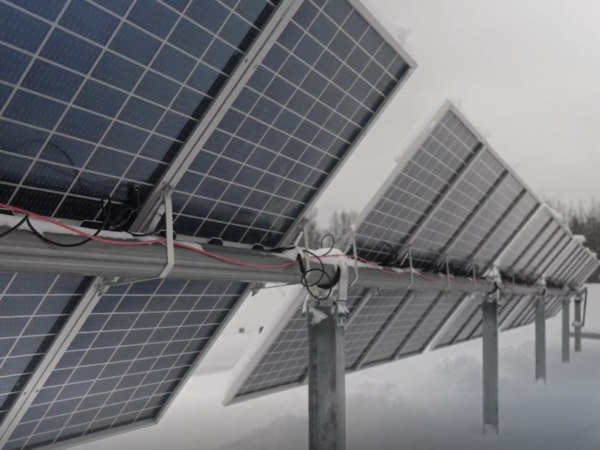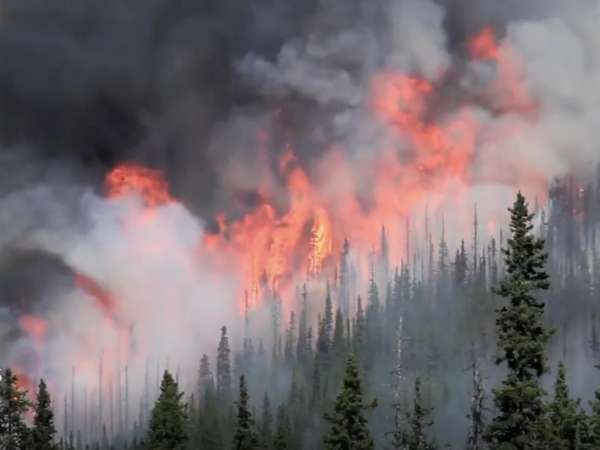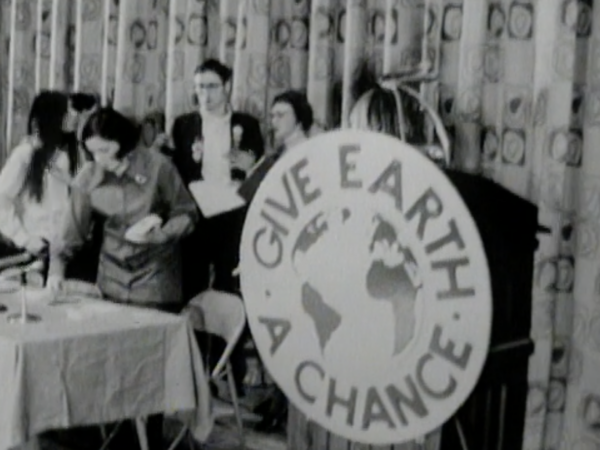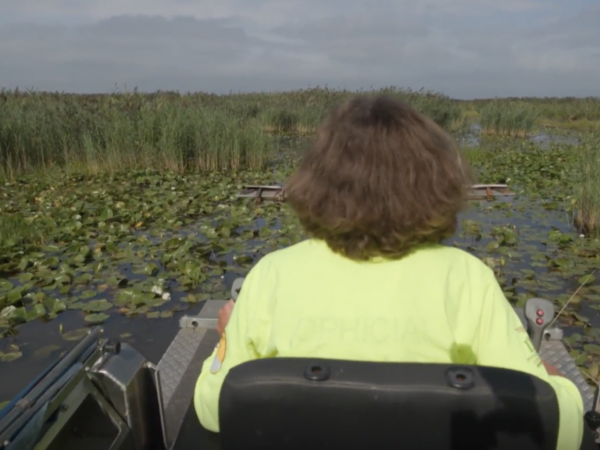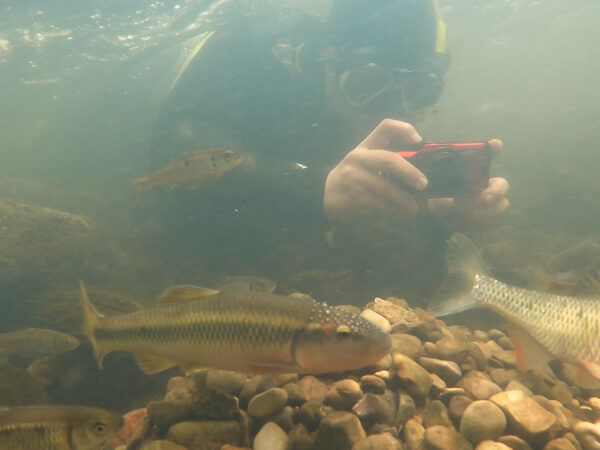IN THIS EPISODE:
In this episode of Great Lakes Now, a look at what happens when it’s the end of the line for old Great Lakes freighters, how to feed the crew of a 1,000-foot-long freighter, and The Catch has news from around the Great Lakes.
WHERE WE TAKE YOU IN MAY
GREAT LAKES LEARNING:
Explore this month’s hands-on lesson plans designed to help your middle schoolers understand the Great Lakes — all at home or in the classroom. They’re aligned to education standards AND free to download.
Lesson Plans
Have a question about the Great Lakes or life in the region?
Ask Great Lakes Now, and if we can answer it, we might loop it into our coverage so others can learn too.
Submit Your Question
When to Watch?
Check your local station for when Great Lakes Now is on in your area.
Great Lakes Now
Premieres on DPTV
Monday, May 29, at 7:30 PM
STATIONS CARRYING THE SERIES
DPTV
Detroit, Michigan
WEAO
Akron, Ohio
WNEO-TV
Alliance, Ohio
WCML-TV
Alpena, Michigan
WDCP-TV
Bad Axe, Michigan
BCTV
Bay County, Michigan
WBGU-TV
Bowling Green, Ohio
WNED-TV
Buffalo, New York
WCMV-TV
Cadillac, Michigan
WTTW-TV
Chicago, Illinois
WVIZ-TV
Cleveland, Ohio
WKAR-TV
East Lansing, Michigan
WQLN-TV
Erie, Pennsylvania
WCMZ-TV
Flint, Michigan
WGVU-TV
Grand Rapids, Michigan
WPNE-TV
Green Bay, Wisconsin
WGVK-TV
Kalamazoo, Michigan
WHLA-TV
La Crosse, Wisconsin
WHA-TV
Madison, Wisconsin
WNMU-TV
Marquette, Michigan
WHWC-TV
Menomonie-Eau Claire, Wisconsin
WMVS-TV
Milwaukee, Wisconsin
WCMU-TV
Mt. Pleasant, Michigan
WLEF-TV
Park Falls, Wisconsin
WNIT-TV
South Bend, Indiana
WCNY-TV
Syracuse, New York
WGTE-TV
Toledo, Ohio
WDCQ-TV
University Center, Michigan
WNPI-TV
Watertown, New York for Ontario signal
WPBS-TV
Watertown, New York for U.S. signal
WHRM-TV
Wausau, Wisconsin
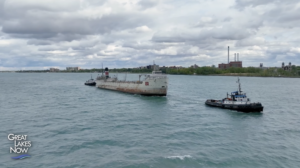
A scene from the shipbreaking process at Marine Recycling Corporation in Ontario.
Where Freighters Go To Die
SEGMENT 1 | Port Colborne, ON
Sitting at the mouth of the Welland Canal that connects waterways of Lake Erie and Lake Ontario, Marine Recycling Corporation is riddled with Great Lakes history.
Join Great Lakes Now as we dive into the reality of shipbreaking and how the yard recycles giant freighter ships that have sailed the Great Lakes.
This yard has been the final resting place for more than 100 vessels. Wayne Elliott, MRC Founder and Director of Business Development, has been working as a shipbreaker for more than half a century and has even recycled a few famous vessels. Ships can arrive at MRC’s shipyard in a few ways. Most are towed, but some can be steamed in their own power. Once the vessels make it to MRC, the process of breaking down the ships begins, and safety is crucial.
Collecting things like portholes, lights and steel, the shipbreakers get resourceful sorting through material to sell, recycle and discard.
“We’re the most experienced ship breakers in the world, so I’m kind of proud of that. It’s a family tradition because it’s what we do. We’re the best at it. We love the ships,” said Wayne Elliott.
Here is other Great Lakes Now work on freighters:
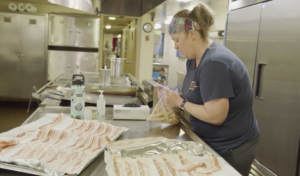
Some of the crew aboard the Mesabi Miner freighter enjoy the culinary offerings of Chief Steward Sissy Payment.
Cooking for the Crew of a 1,000-Foot Freighter
SEGMENT 2 | Port of Cleveland, Whiskey Island, Cleveland, OH
From late March to January, freighters crisscross the Great Lakes delivering raw materials to ports all across the region. It’s hard work and the crews on these ships develop hearty appetites.
Join Great Lakes Now as we board one of the biggest ships on the Great Lakes – The Interlake Steamship Company’s Mesabi Miner – and see what’s cooking in the ship’s galley.
Built in 1977, this 1,004-foot-long freighter transports approximately 63,000 gross tons in a single load. It’s an impressive feat, but a ship is nothing without a crew and that’s where Chief Steward Sissy Payment comes in.
Payment and her second cook feed the ship’s crew, which consists of two dozen sailors, each and every day. Their daily menu includes three full meals, grab-n-go snacks, homemade cookies and desserts, and even fresh baked bread each night. It’s a lot of work, but Payment knocks it out of the park by serving up delicious food that refuels the crew’s bodies and good vibes that helps boost morale.
Here is other Great Lakes Now work on food:
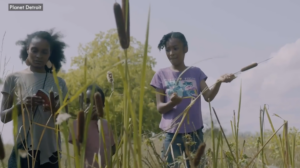
A scene from “Claiming Connections,” a new film from Planet Detroit.
The Catch: News about the Lakes You Love
SEGMENT 3 | Indiana Dunes National Park, Duluth, MN, Detroit, MI
This segment – The Catch – in our award-winning PBS program will keep you in the know. This month, stories about controlled burns at a National Park, the sale of an old Great Lakes lighthouse and a preview of a new film highlighting BIPOC-led organizations aimed at getting communities of color out into nature.
First, a look at how Indiana Dunes National Park handles controlled burns. “It’s really a way of preventing wildfire from raging, uncontrolled and rampant throughout the entire national park and also from posing a threat to property and human life at the many homes and businesses and so forth just outside the park,” said Joseph Pete, a reporter for The Times of Northwest Indiana. By burning about 10 percent of the 15,000 acres of the park each year, the risk of larger fires becomes lower and it helps to improve nutrients in the soil and promote consistent plant growth.
Next, we travel to Duluth, Minnesota, where a lighthouse is getting a new owner. The “Duluth Harbor North Pier Head Light” is located in Canal Park, a place where big ships travel into the Duluth Harbor. The lighthouse was recently passed from the U.S Coastguard to a Minnesota non-profit organization, Rethos, where the plan is to make it the centerpiece of a revitalized historic district. Minnesota Public Radio News Reporter Dan Kraker says this is part of a trend that Great Lakes cities are doing to revamp their historic structures. “ I think these… efforts to restore these structures really fit with…the deep seated passion that folks have for these unique buildings.”
Finally, a new film aims to highlight Detroit-based organizations engaging people of color to connect more with nature and the outdoors. Planet Detroit Founder Nina Ignaczak is the director of the new film called “Claiming Connections.” Activities such as birding, kayaking and hiking are just a few of the ways that several groups are encouraging BIPOC communities to enjoy the outdoors. Nina said the groups have emerged as a response to the harmful and deep-rooted history of oppression and violence that people of color have experienced in outdoor spaces. “I believe that Detroit is a leader in this space. I haven’t found very many other examples of grassroots groups that are forming and successfully working to provide such a broad variety of opportunities for families, individuals, kids of color to get out and do a whole host of outdoor activities,” Nina said.
Find all The Catch segments HERE.
Videos from Episode 2305
Subscribe on YouTube
Featured Articles
Digital Credits
The Great Lakes Now Series is produced by Rob Green and Anna Sysling.


